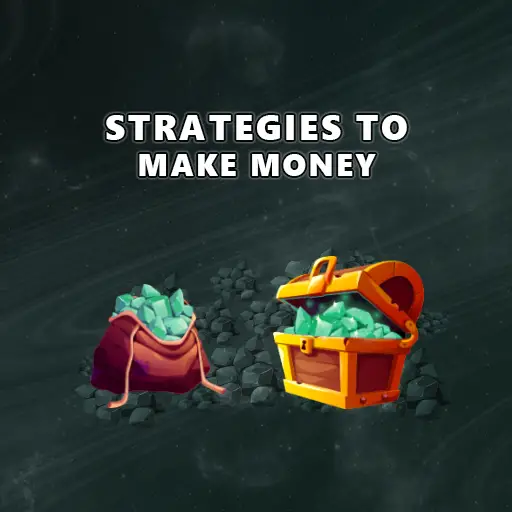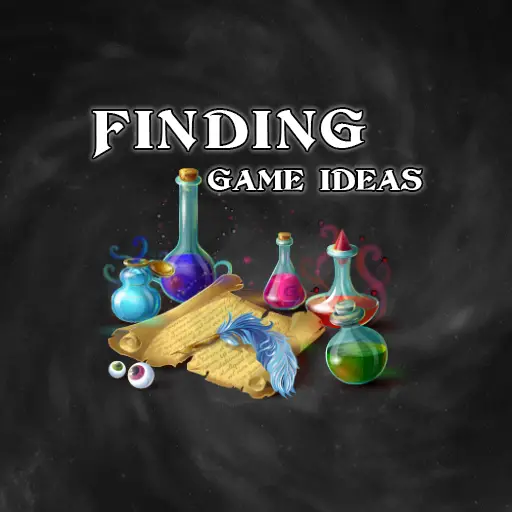Every year, thousands of new and innovative games are released to the market by indie game developers, but only a handful of them reach large-scale success. You only hear about the small number of games that do succeed, so why do so many indie games fail? I want to explore this question by using a concept called Inversion Thinking. Using this concept, you will understand how to fail at game development, and then do the opposite to succeed by default.
Our brain is wired to anticipate problems in every aspect of our lives, so it is much better at finding faults than coming up with solutions. Inversion Thinking is a form of problem-solving method where, instead of thinking about how to reach a goal, you list all the ways not to reach that goal and do the opposite. This allows you to solve problems in reverse. So, what happens if we take this concept and apply it to indie game development? In this article I will talk about how to fail as an indie game developer. Keep reading, this will be my most motivational article yet!
1. Treat Game Development Like a Hobby
The first way to fail at indie game development is to treat it like a hobby. Hobbies are optional and fueled by your will to do something you like. So, when things get tough, the motivation to continue the hobby disappears, and so does the game and the chance of success.
The truth is that video games are a complex product, requiring months or years of development, maintenance, marketing, and many other aspects of a business. If you treat your game development like a business, you will look at it differently and be more likely to continue working on it, even when times are tough. So, keep treating game development as a hobby, it’s one of the best ways to fail.
2. Think You Know What People Want
The second way to fail is to think you know what games people are looking for. Before you start designing and implementing the game, you should know your target audience. And if you think you know what your audience really wants, you are probably wrong. Don’t assume you know what people want.
The goal is to get the most amount of people interested in your game, and you can’t do that without asking for other people’s opinions. The opinion of others is so valuable, you can’t afford to ignore it. Pitch your idea to your friends, family and people who have the same interests as you and ask what they think.
If the sentiment of the responses you get is fairly positive, then continue with your project. But, if you feel that most people you ask did not receive your idea well, take some time to improve it and do the same thing again.
So, if you want to keep failing, don’t ask for opinions and keep developing games for yourself.

3. Focus on the Wrong Thing
When I started, I wanted to program my way to a complete game, since I’m a software developer at heart. But I very quickly found myself developing my own game engine and neglecting the artistic side, which, as you probably know, is important. After all, you only have a few things to convey the story of the game. And if you don’t have the art on the screen, it doesn’t matter how beautiful and efficient your code is. I was focusing on the wrong thing, and it led me nowhere.
Another great way to fail is to invest your time and effort doing the wrong thing. Spread your efforts across all requirements of the project. If you’re working with a team, try leveraging their skills and assigning each person tasks according to what they’re good at. If you’re an independent developer, well, then you will just have to do everything on your own and balance the workload of every aspect of your game. Want to keep failing at game development? Just keep focusing on the wrong thing and leaving everything else up in the air.
4. Expect Everything To Go Smooth
Do you also feel like everything you do in life just goes smoothly, in the fastest and best way possible? Me neither. I’m not trying to discourage you, but game development is hard and you should expect it to be that way. Otherwise, everyone would do it, and then it would be very competitive and again, very hard.
Failure is guaranteed if you are expecting everything to go smooth. Nothing will go as planned, I promise you that. You will have stressful times, mental breakdowns, arguments with your teammates, wife, and yourself. Expect disappointments and frustration at every stage of the development process. But if you endure, you will come out much stronger on the other side.
Expect difficulty at every stage of the development process. It will probably take you more than twice the time you planned for development, especially if you’re just starting out. So, plan ahead, count on everything going wrong, and give yourself a large buffer for errors. But your goal is to fail, right? So, don’t plan for the worst and expect everything to go as smoothly as possible.

5. Give Up on the First Try
Most businesses fail because they give up too quickly. This applies to business in general. One of the most important things in business is perseverance. You will have failures, I promise you that. There is no success without a graveyard of failures. No one has ever consistently succeeded without experiencing a bunch of failures in their past. As the saying goes, “You can’t make an omelette without breaking some eggs”. So, the best way to fail at indie game development is to just give up on the first try. Failure is guaranteed!
6. Develop Everything From Scratch
Another way you can fail is by developing everything on your own and from scratch. You must learn how to use external tools. As I mentioned before, I was sucked into game engine development and didn’t pay much attention to anything else. The painful truth was that I was developing everything on my own, which is not smart, effective, efficient, achievable, or realistic (pick the word resonating with you the most). Developing a full-featured game engine could have taken me years of work and maintenance and would probably lead to nothing.
One day I asked myself, “Am I going to develop the sound editing software myself too? How about the character rigging software, animation software? Am I going to develop entire algorithms for post-effects?” I went down that rabbit hole and realized that if I was not going to do all of those things, there is no point in developing anything on my own.
Now, don’t get me wrong, if your goal is to develop the most efficient and advanced game engine in the market, go for it. But if you want to create games, you have to use external tools. So if you keep developing everything in-house, plan for a long development journey.
7. Plan and Do Nothing
Isn’t it fun to just learn how to make games, play around with some game engines and other free software? It’s a nice way to spend your time and do nothing. But at some point, if you want to develop a real game that will actually sell, you have to buckle down and start doing the hard stuff. Study, plan and execute on every topic you cover.
Planning and doing nothing will lead you nowhere. This is a surefire way to give up. You need to learn how to use tools, develop skills, reach out to people, secure funding, market your game, and give customer support. Now that I write it, it sounds like a lot of work! So, keep playing and doing nothing; I promise it’s a great way to fail at game development.
The first step of creating your own game is coming up with a creative idea. So, when you decide it’s time to stop procrastinating and start doing, read this article to guide you in your first steps: How to Find a Good Game Idea.

8. Don’t Ask For Help
You can do anything you set your mind to, but how long will it take you? Do you really want to spend months and years making the same mistakes that others have made before you? Probably not. If you don’t know how to ask for help, your success might be diminished by your own limitations.
I am not saying you must ask for other people’s help, but It will benefit you to talk to someone who has already gone through this journey and consult them. Nowadays, this is called a mentor. Find someone who will help you at the beginning of your journey. It will probably save you a lot of time and headache.
Mentors are a great way to shortcut your way to success. If you don’t know how to find a mentor, go to game development forums and websites and ask for advice. Find people who seem to know their craft and send them a message or email and ask for guidance. Hopefully, someone will be kind enough to answer and might even agree to show you the way and help you avoid common mistakes. Don’t be afraid to ask for help. But if you really want to keep failing, just trust your instincts and don’t ask for help, don’t learn from other people’s mistakes.
Want to know where you can find help? Check out this article: The Best Websites to Publish Your Games. There you can find the top game publishing websites and communities to guide you.
Conclusion
After reading these great ways to fail at indie game development, you probably feel a little unmotivated so let’s recap everything in a positive way. Here are the reverse takeaways from the article:
- Treat game development as a business, not as a hobby.
- Don’t assume you know what people want, ask them instead.
- Focus on the most impactful actions in your area of expertise and delegate if possible.
- Expect everything to go the worst possible way and prepare for it.
- Try, fail, and then try again and again, but never give up.
- Use tools other people have already built, it will help you advance much faster.
- Plan and execute, because no one ever achieved anything by doing nothing.
- And finally, ask for help every time you need it and learn from the mistakes of others.
If you want to learn more about indie game development, be sure to check out my other blog posts here: Night Quest Games Blog. That’s it my friends, I hope you learned something from this article and I wish you success in your journey. Good luck!
If the information in this article was helpful to you, please consider supporting this blog through a donation. Your contributions are greatly appreciated and allow me to continue maintaining and developing this blog. Thank you!
Attributions
The featured Image was provided by upklyak on Freepik.
The Fortune Teller image is from brgfx on Freepik.
The Everything Going Smooth image was taken from macrovector on Freepik.
The Plan Everything Do Nothing image was created by macrovector on Freepik.



